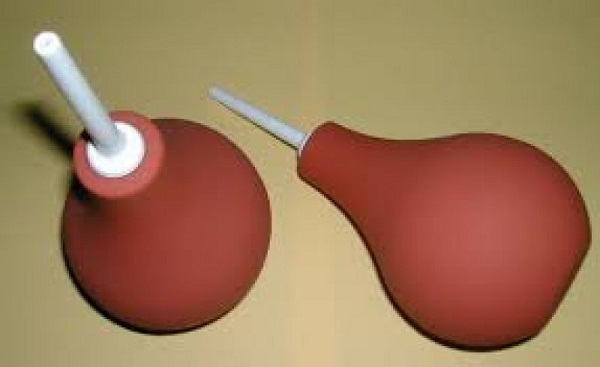Dear Mirror Doctor, Is it good to give enemas to children? I am under pressure to give enemas to my children every six months. Is there any medical basis for this?
Worried mum,
Dear Worried mum, An enema is
An enema has the advantage over any laxative in its speed and certainty of action. The anal route can be used to administer certain medical or even recreational drugs in adults. Enemas have been used for rehydration therapy in patients where intravenous access is very difficult in extreme emergency situations.
Chronic use of enemas is indicated in certain medical conditions. Children with such conditions as spina bifida, Hirschprungs disease, imperforate anus and neurogenic bladder require
Once
Enemas are generally not recommended in children under two years of age unless medically indicated. Even then, the only enemas that are completely safe in children are mineral oil and normal saline enemas.
Normal saline (salt water) enemas can be made at home or can be purchased without
A homemade saline solution can be prepared by adding two level teaspoons of table salt to a litre of lukewarm distilled water. The amount of normal saline solution that should be given to children
Two to six years . . . . . . . . . . . . . 100-150ml
Six to 12 years. . . . . . . . . . . . 200-300mls
Adolescents and adults. . . . . . 400-500mls
We should never use soapsuds, hydrogen peroxide, or plain water as an enema as they are dangerous to both children and adults. What is even worse is the local herbal concoctions, made up of pepper, ginger, other spices and herbs, something used very liberally in Ghanaian children.
In my line of practice, I have seen a lot of babies dying needlessly from complications of these enemas called enema colitis. Babies normally need time to develop their own bowel habits. It is not unusual for them to have erratic bowel movements within the first six months.
Some parents, especially the first time mothers, become alarmed when the child doesn't pass stool for a day or two. Friends and grandmothers are consulted and the verdict invariably is to give enemas. Unless medically advised, enemas in children must be avoided at all cost.
It is a common practice to give enemas to older children because they just happened to have passed gas to offend the delicate nasal passages of adults at the wrong time and hence they need " bowel cleansing." This practice is largely unnecessary and dangerous as the enemas used are
As already indicated, there are certain medical conditions that warrant the child to have serial enemas.
The commonest of these is Hirschprungs disease where the enema or washout initially is done in the hospital and parents are gradually thought to do it at home. These are medically sanctioned and the constituents of the enema are clearly spelt out so enema colitis is not an issue here.
Enemas are shockingly routinely used in adults for various reasons including for ritual purposes; as an aperient, aphrodisiac or emetic; and for the treatment of impotence, febrile symptoms, abdominal pains, dysmenorrhea and dysentery.
Dangerous substances employed include herbal medicines, Dettol, vinegar, caustics, soap, potassium dichromate, copper sulfate, potassium permanganate, and brown sugar.
In one study done in South Africa, Eleven patients in whom colitis developed following enema administration had developed
Enema, unless medically indicated
astom2@yahoo.com
A member of Paediatric Society of Ghana

